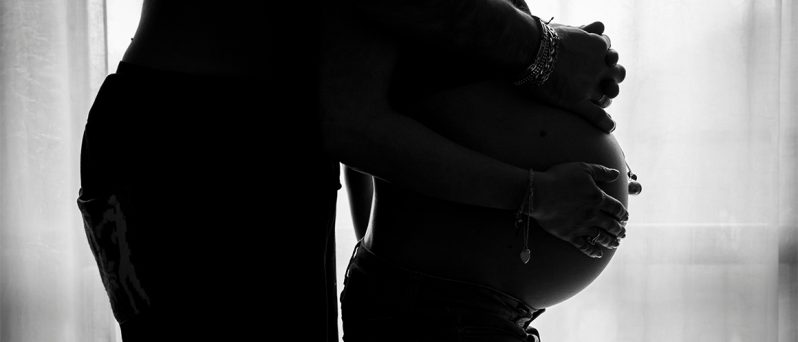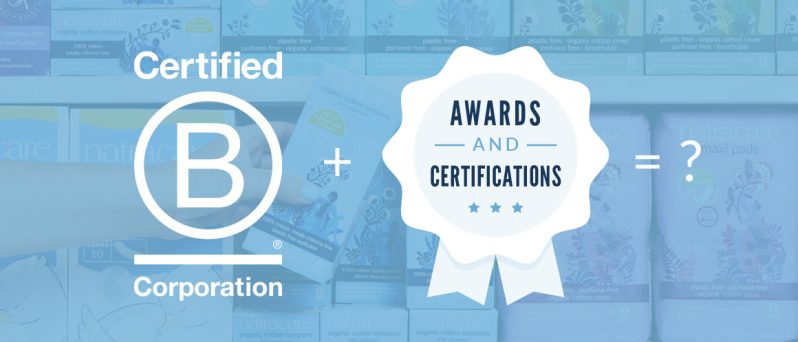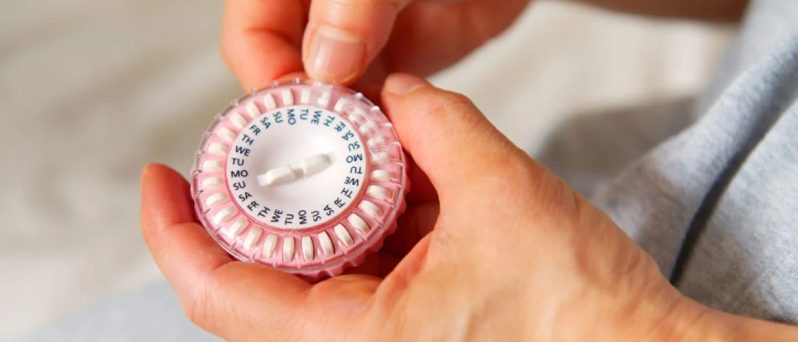The Plastic Free Mark launched by environmentalist group A Plastic Planet has been spotted on teabags, food products, and even validated ‘the world’s first plastic-free supermarket aisle in Amsterdam’1. Now this revolutionary ‘stamp of approval’ has finally made its way to disposable period products – a sector that historically has been under scrutiny for its plastic problem.
The pioneering brand Natracare (who launched the first ever organic cotton tampon in 1989) is the world’s first period brand to be awarded with the Plastic Free Mark for its packaging (in 2019) and now for its whole product (applicator tampons and pads, in 2021). Susie Hewson, founder and CEO of Natracare, says the brand is beyond thrilled to hold an accolade of this kind.
“The concept of plastic-free periods is nothing new to Natracare, we have been campaigning this for over 30 years. But there is a wonderful wave of cultural change happening right now, where more people are talking about periods and have an environmental drive to reduce plastic consumption. I think more than ever, brands need to be totally transparent with what they are putting into their products – and so this mark is not only a celebration of a more sustainable future, but hopefully a more transparent future in period care,” says Hewson.
The plastic period problem
Plastic in period products, and confusion over how to dispose them, is unquestionably having a huge negative impact on the planet. Around 2.5 million tampons, 1.4 million pads and 700,000 panty liners are flushed every single day in the UK2.
A Natracare study showed that an average pack of conventional pads contained as much plastic as 5 carrier bags3 (including the packaging). As for tampons, some incorporate a thin layer of hidden plastic, which is used to help hold the tightly packed cotton part together. In some cases, the string is also made of polyester or polypropylene4.
The plastic period problem came to the public attention last year when environmentalist Ella Daish created a giant tampon applicator as part of a protest against single-use plastic. This was made from 1,200 applicators collected from 15 different locations across the country5. Daish’s #EndPeriodPlastic campaign helped to successfully get many shops like Sainsbury’s, Tesco, Asda, Waitrose, Boots, and Superdrug to ditch its own-brand plastic tampon applicators and sell eco-alternatives alongside them. This was a powerful step in the fight against unnecessary plastic applicators.
Environmental Activist, Ella Daish says: “The introduction of the Plastic Free Logo onto the packaging of Natracare’s period products is absolutely fantastic! This move will help consumers identify eco-friendly choices with confidence and highlight the hidden plastic in mainstream period brands to a wider audience.”
69% of Brits more likely to purchase transparent products
Shockingly there are no legal requirements for manufacturers to disclose their list of ingredients in their period products. This comes at a time when customers are increasingly wanting to learn more about the cocktail of ingredients in products, and its impact on the environment. Research revealed ‘product information detailing the sustainability and environmental impact would make 69% of British consumers more likely to purchase’6.
Natracare has always championed transparency in their products and processes – from the information on their website to their packaging. The brand has a unique full lifecycle analysis of the environmental impact of making their products, which detailed that exactly 23.5g of carbon is used in the creation of a menstrual pad. They also work with organisations like City to Sea and WEN (Women’s Environmental Network) to educate young people and lobby change in the period health space, and have independent accreditations from numerous environmental, ethical and animal rights organisations like Soil Association, Made Safe and The Vegetarian Society.
The Plastic Free Mark is the first step for more transparency in period products and Natracare is committed to driving this narrative forward. Natracare hopes this mark will end confusion over hidden plastics and pave the way for a future where truth in labelling and plastic-free periods will finally become the norm.
References
- Ekoplaza – Ekoplaza Lab
- Environmental Scientist, 2014 – Water Security, [PDF]
- Natracare, 2019 – Pack Of Pads Contains As Much Plastic As Five Carrier Bags
- National Geographic, 2019 – How tampons and pads became so unsustainable
- Euro News, 2020 – Activist creates giant tampon applicator to highlight plastic waste
- Fashion United, 2019 – Brits seek greater transparency around sustainable purchases
Notes to editors
Natracare is the first company in the world to provide plastic-free, certified organic cotton tampons and totally chlorine-free sanitary pads and panty liners. Natracare products are biodegradable and can even be composted. Susie Hewson created the brand in 1989 in response to the growing danger to human health and the environment from dioxin pollution in the pulping industries with the chlorine bleaching of paper products.
A Plastic Planet was founded in 2017 with one singular goal: to ignite and inspire the world to turn off the plastic tap. A Plastic Planet work collaboratively with all stakeholders – industry, retailers, packaging suppliers, schools, media, NGOs, Government and the UN to accelerate the pace of essential change. A Plastic Planet is to keep up the pressure, help introduce plastic-free alternatives and champion those who are doing the right thing with lobbying and education.
City to Sea is a not-for-profit organisation campaigning against plastic pollution. Their mission is to connect our actions to the oceans, by giving people and businesses from all backgrounds simple ways to make a significant difference.
WEN (Women’s Environmental Network) is a charity working on issues that connect gender, health and the environment. Wen work alongside communities supporting action and get a real-world understanding of women’s lived experiences in the process. With this knowledge, they create collaborative partnerships with organisations, academics and policymakers to launch projects and campaigns that make a real difference and improve lives.








